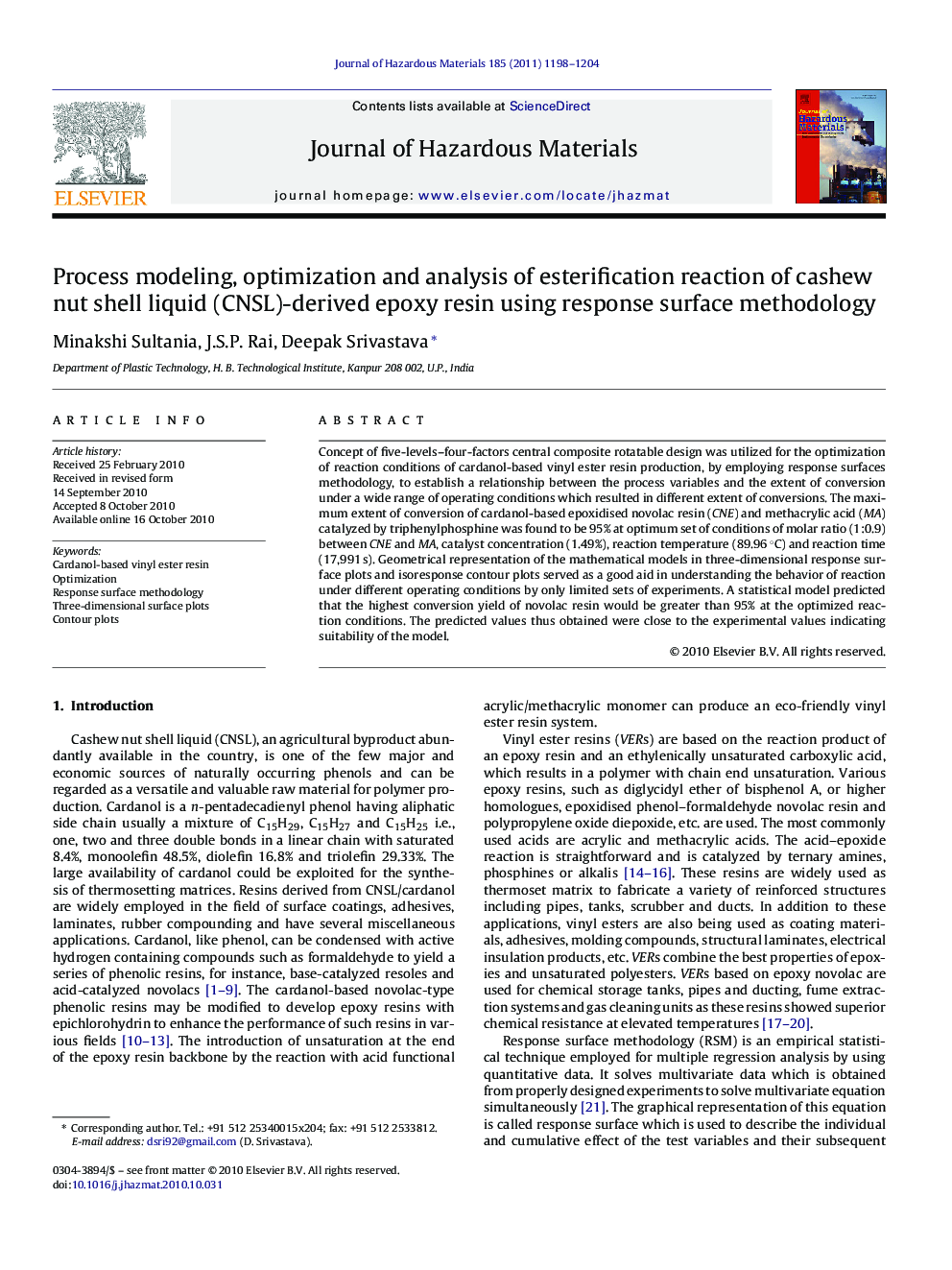| کد مقاله | کد نشریه | سال انتشار | مقاله انگلیسی | نسخه تمام متن |
|---|---|---|---|---|
| 579909 | 1453143 | 2011 | 7 صفحه PDF | دانلود رایگان |
عنوان انگلیسی مقاله ISI
Process modeling, optimization and analysis of esterification reaction of cashew nut shell liquid (CNSL)-derived epoxy resin using response surface methodology
دانلود مقاله + سفارش ترجمه
دانلود مقاله ISI انگلیسی
رایگان برای ایرانیان
کلمات کلیدی
موضوعات مرتبط
مهندسی و علوم پایه
مهندسی شیمی
بهداشت و امنیت شیمی
پیش نمایش صفحه اول مقاله

چکیده انگلیسی
Concept of five-levels-four-factors central composite rotatable design was utilized for the optimization of reaction conditions of cardanol-based vinyl ester resin production, by employing response surfaces methodology, to establish a relationship between the process variables and the extent of conversion under a wide range of operating conditions which resulted in different extent of conversions. The maximum extent of conversion of cardanol-based epoxidised novolac resin (CNE) and methacrylic acid (MA) catalyzed by triphenylphosphine was found to be 95% at optimum set of conditions of molar ratio (1:0.9) between CNE and MA, catalyst concentration (1.49%), reaction temperature (89.96 °C) and reaction time (17,991 s). Geometrical representation of the mathematical models in three-dimensional response surface plots and isoresponse contour plots served as a good aid in understanding the behavior of reaction under different operating conditions by only limited sets of experiments. A statistical model predicted that the highest conversion yield of novolac resin would be greater than 95% at the optimized reaction conditions. The predicted values thus obtained were close to the experimental values indicating suitability of the model.
ناشر
Database: Elsevier - ScienceDirect (ساینس دایرکت)
Journal: Journal of Hazardous Materials - Volume 185, Issues 2â3, 30 January 2011, Pages 1198-1204
Journal: Journal of Hazardous Materials - Volume 185, Issues 2â3, 30 January 2011, Pages 1198-1204
نویسندگان
Minakshi Sultania, J.S.P. Rai, Deepak Srivastava,